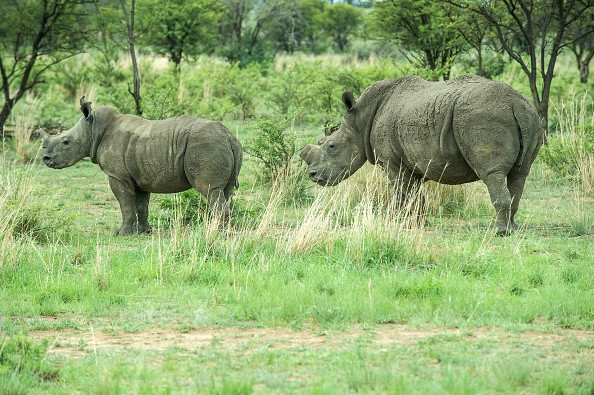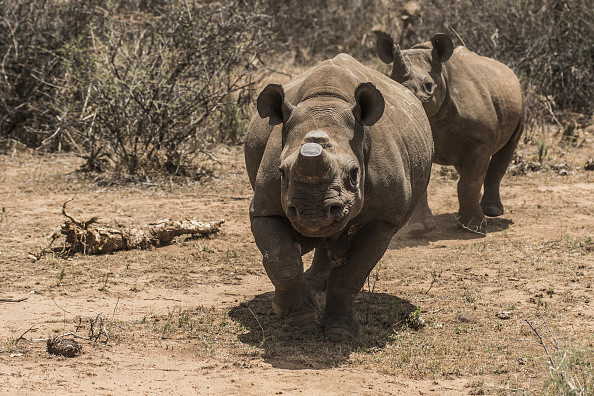Rhino poaching: World largest rhino farm protected by private army

To deal with the South African rhino poaching crisis, the largest private rhino farm in the world has resorted to a radical solution. To protect the 1,200 rhinos that live freely on the 8,000 hectares grounds, John Hume the owner, employs a private army.
The millionaire, who opened the place in 2008, doesn't want to reveal the exact number of his "soldiers" because he says the information is too sensitive, but he admits to paying €150,000 (£115,000) each month, to ensure his security and that of the animals.
During the day, armed men walk through the grounds, and at night an infra-red camera system combined with helicopter patrols guarantee a strict, full time surveillance of the farm.
Increase in rhino poaching
The idea behind this "army" is to act as a deterrent against poachers, who are particularly active in South Africa. A large proportion of the world's rhino population is found in the country. Indeed, with 18,796 animals in 2010, it has up to 93% of all white rhinos in the world who live there.
In the 1990s South Africa didn't experience a poaching crisis as severe as in the neighbouring countries, but as the demand for rhino horn soared in Asia, Vietnam in particular, the killing of rhinos accelerated.
Just last year, 1.175 animals were poached in the country. The year before, this figure was just a bit higher, with 1,215 rhinos killed in 2014, 1,004 in 2013, 668 in 2012 and "only" 448 in 2011. Since 2008, John Hume himself lost 39 of them to the illegal trade.
Rhino horn is sought for its supposed healing properties, as it is used in traditional Chinese medicine, but it is also a symbol of wealth and high social status in some communities.
Changing the law
To stop poaching and to protect rhinos, John Hume believes the repressive apparatus that he has put in place to protect his farm is not enough. He advocates for the complete legalization of the sale of rhino horns to cut the poachers' source of revenue, and is currently suing the South African government to that end.
"Today, rhino horns that are sold on the market come from animals that have been poached. This is impossible to understand for me, since we could answer consumer demand with horns from live rhino", John Hume says.

In South Africa, various changes have been introduced in the law, in recent years, to fight off poaching. In 2008, a moratorium was placed on rhino horn sales with prison sentences given to those convicted of poaching From 2009, stricter regulations were gradually introduced to further combat poaching, as well as trophy hunting.
On his farm, part of the animals' horns are removed safely to make the rhinos less attractive to poachers. Of course, all this hard work is not purely altruistic. John Hume keeps the horns in highly guarded bank safes, hoping he can one day sell them when the trade of live rhino horns become legal.
© Copyright IBTimes 2025. All rights reserved.






















